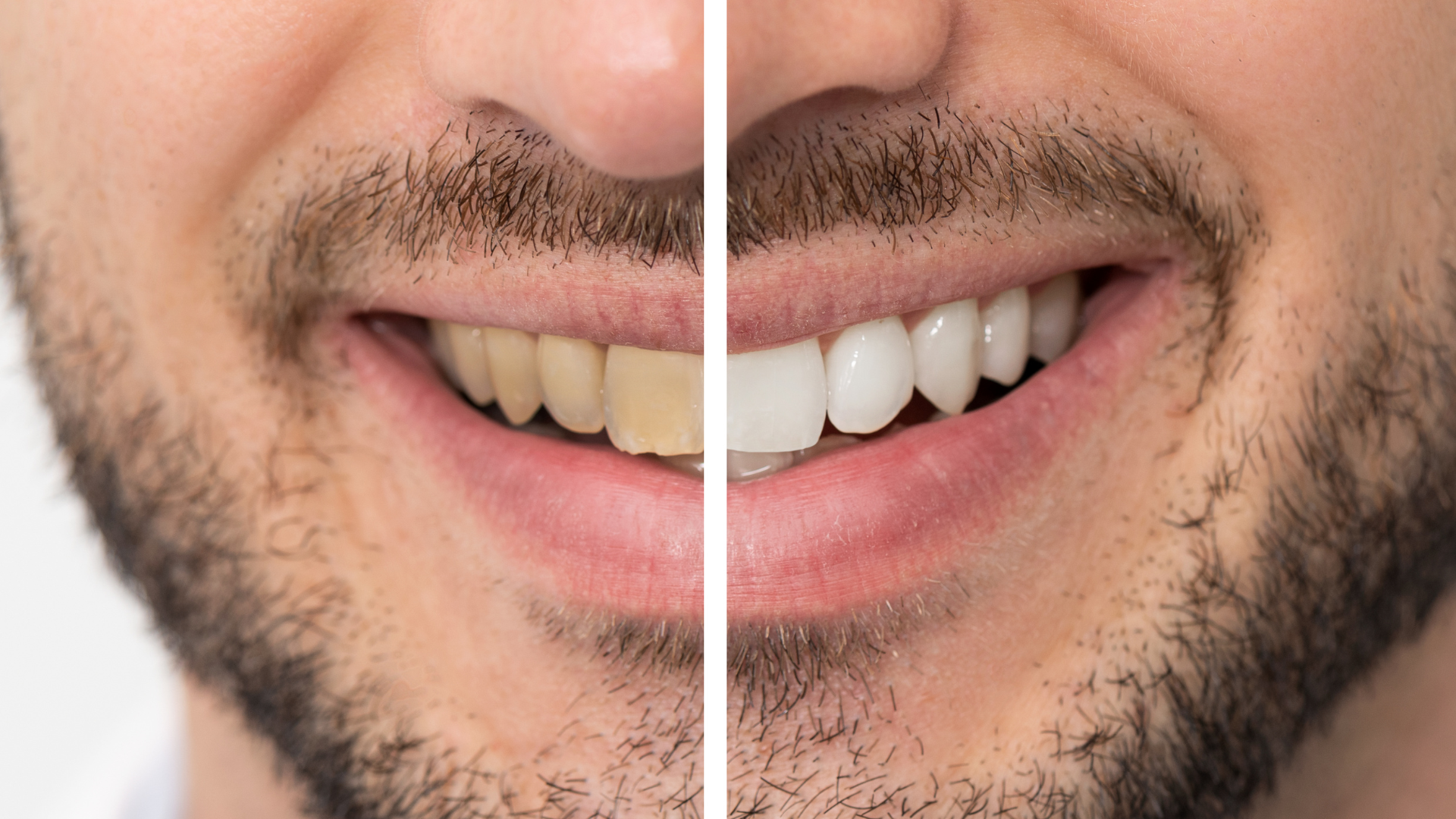Dental Emergency in Toronto, ON? Here’s What You Need to Know
Understanding Dental Emergencies
Types of Dental Emergencies
So, what exactly counts as a dental emergency? It's more than just a toothache. A true dental emergency involves situations that need immediate attention to alleviate severe pain, stop ongoing bleeding, or save a tooth. Here are some common examples:
- Severe toothache with swelling
- Knocked-out tooth
- Lost filling or crown with significant pain
- Abscess or infection
- A broken or fractured tooth causing pain
Signs You Need Immediate Care
Knowing when to seek immediate dental care is super important. Don't wait if you experience any of these:
- Uncontrolled bleeding in the mouth.
- Facial trauma involving your teeth or jaw.
- Severe pain that doesn't respond to over-the-counter pain relievers.
- Difficulty breathing or swallowing related to dental issues.
Ignoring these signs can lead to more serious health problems down the road. It's always better to err on the side of caution and get checked out by a Danforth Neighbourhood Dental Centre professional.
Common Causes of Dental Emergencies
Dental emergencies can pop up for various reasons. Sometimes it's just bad luck, but often, they're linked to:
- Poor oral hygiene: Neglecting brushing and flossing can lead to cavities and infections.
- Trauma or injury: Accidents, sports injuries, or falls can damage teeth.
- Underlying dental conditions: Untreated cavities, gum disease, or weakened teeth can suddenly become problematic.
- Biting on hard foods can cause fractures or dislodge fillings. You just never know when a dental emergency will happen.
Where To Go For Dental Emergency Care
Knowing where to turn can make all the difference when a dental emergency strikes. Time is often of the essence, and getting prompt, appropriate care can alleviate pain, prevent further damage, and even save a tooth. Toronto offers several options for emergency dental care, each with advantages and considerations.
Dental Clinics in Toronto
Many dental clinics in Toronto accept emergencies whenever possible. They are often the quickest and most direct route for addressing dental emergencies. These clinics handle urgent dental issues during regular hours. Danforth Neighbourhood Dental Centre, for example, includes emergency danforth dental services to address immediate concerns.
Here's what to consider when choosing an emergency dental clinic:
- Availability: Look for clinics with extended hours, including evenings, weekends, and holidays.
- Services Offered: Ensure the clinic provides the specific services you need, such as pain relief, tooth repair, or extraction.
- Location: Choose a clinic easily accessible from your home or workplace.
Emergency dental clinics can provide immediate care and stabilize your condition. They can address severe pain, infections, and trauma, offering a crucial first step in managing your dental emergency.
Hospital Emergency Rooms
While hospital emergency rooms are equipped to handle a wide range of medical emergencies, they may not always be the best option for dental-specific problems. Hospital ERS typically prioritize life-threatening conditions, and dental issues may not receive immediate attention. However, in certain situations, a hospital ER may be necessary.
Consider visiting a hospital ER if:
- You've experienced significant trauma to the face or jaw.
- You're experiencing uncontrolled bleeding in the mouth.
- You have a severe infection that is affecting your breathing or swallowing.
Urgent Care Facilities
Urgent care facilities can be a middle ground between emergency dental clinics and hospital ERS. While they don't specialize in dental care, they can provide basic treatment and pain relief for specific dental issues. They can also help diagnose underlying medical conditions contributing to your dental problem.
Urgent care facilities may be suitable for:
- Minor toothaches or discomfort.
- Swelling or inflammation in the mouth.
- Referrals to a specialist if needed.
What To Do Before You Get Help
It's important to act quickly if you have a dental emergency. However, before rushing to Danforth Neighbourhood Dental Centre or another emergency service, there are some things you can do to help manage the situation and potentially save your tooth.
First Aid for Dental Injuries
If you've experienced a dental injury, here's what you should do immediately:
- The most important thing is to handle a knocked-out tooth carefully. Pick it up by the crown (the part you chew with), not the root. Gently rinse it with water if it's dirty, but don't scrub or remove any tissue fragments.
- Try to put the tooth back into its socket. If it doesn't go in easily, keep it moist by placing it in milk, saliva, or a tooth-preserving solution (if you have one). Get to Danforth Neighbourhood Dental Centre as fast as possible.
- For a fractured or chipped tooth, rinse your mouth with warm water to clean the area. Use a cold compress on your face to reduce swelling. Save any pieces of the tooth and bring them with you to the dentist.
- If you have a soft tissue injury (like a cut on your gums or cheek), rinse your mouth with warm salt water. Apply pressure to the bleeding area with a clean gauze or cloth.
Managing Pain and Discomfort
Dental pain can be intense, so here's how to manage it while waiting for professional help:
- Over-the-counter pain relievers like ibuprofen or acetaminophen can help reduce pain and inflammation. Follow the dosage instructions on the label.
- A cold compress applied to the outside of your cheek can help numb the area and reduce swelling.
- Rinsing your mouth with warm salt water can help soothe irritated tissues and reduce bacteria.
- Avoid eating hard, chewy, or very hot/cold foods, as these can worsen the pain.
Preserving Damaged Teeth
Taking steps to preserve damaged teeth can improve the chances of successful treatment:
- If a filling or crown falls out, try to find it and bring it to the dentist. If you have over-the-counter dental cement, you can temporarily cement it back in place.
- Avoid touching or wiggling if a tooth is loose but not completely knocked out. Stabilize it as much as possible until you can see a dentist.
- Avoid putting pressure on the damaged tooth. Eat soft foods and chew on the opposite side of your mouth.
Remember, these are just temporary measures. For any dental emergency, it is important to seek professional dental care as soon as possible. Contact Danforth Neighbourhood Dental Centre for guidance and treatment options.
Finding the Right Dentist for Emergencies
Choosing a Local Emergency Dentist
Finding the right dentist, especially when dealing with a sudden tooth issue, can feel overwhelming. The key is to have a plan before an emergency strikes. Start by looking for a local dentist who offers emergency services. Danforth Neighbourhood Dental Centre is one such option in Toronto. It's always better to have someone you trust and can reach quickly.
- Check online reviews to gauge patient experiences.
- Ask friends or family for recommendations.
- Confirm they handle emergency cases.
Having a dentist you can call during an emergency gives you peace of mind. Knowing they're nearby and available can significantly reduce stress when time is of the essence.
Evaluating Dentist Credentials
Before entrusting your dental health to just anyone, take a moment to check their credentials. It's important to make sure your emergency dentist toronto is fully licensed and has a good standing with dental regulatory bodies. Don't hesitate to ask about their experience, especially when handling emergencies. A dentist's qualifications can make a big difference in the quality of care.
- Verify their licensing through the appropriate dental board.
- Inquire about their experience with emergency dental procedures.
- Look for any certifications or additional training.
Importance of After-Hours Services
Dental emergencies rarely happen during convenient times. That's why finding a dentist or clinic offering after-hours services is important. Knowing you can reach someone outside of regular business hours can be a lifesaver when you're dealing with severe pain or a dental injury. Danforth Neighbourhood Dental Centre understands this need and may provide options for those urgent situations.
- Confirm the availability of after-hours or weekend appointments.
- Ask about their protocol for handling emergencies outside of regular hours.
- Check if they have an on-call service for immediate assistance.
Insurance and Payment Options for Emergencies
Understanding Your Dental Insurance
Dental insurance can be confusing, especially when dealing with an emergency. It's important to know what your policy covers before an emergency strikes. Take some time to review your plan details, paying close attention to:
- Annual maximums: How much will your insurance pay in a year?
- Deductibles: How much do you pay out-of-pocket before coverage kicks in?
- Covered procedures: Does your plan cover emergency exams, X-rays, and specific treatments like root canals or extractions?
Also, check if your plan has a waiting period for specific procedures. Some policies require you to be enrolled for a certain amount of time before you can use benefits for significant work. At Danforth Neighbourhood Dental Centre, we can help you understand your insurance coverage and submit claims on your behalf.
Preventing Dental Emergencies
Regular Dental Check-Ups
Going to the dentist regularly is super important. It's not just about cleaning your teeth; it's about catching problems early before they become emergencies. Think of it like taking your car in for maintenance – you're preventing bigger issues down the road. Danforth Neighbourhood Dental Centre recommends scheduling check-ups every six months, but your dentist might suggest something different based on your specific needs.
Here's why regular check-ups matter:
- Early detection of cavities and gum disease
- Professional cleaning to remove plaque and tartar
- Oral cancer screenings
Protective Gear for Sports
Wearing a mouthguard is a must if you play sports, especially contact sports. It's like wearing a helmet for your head – it protects your teeth from getting knocked out or damaged. A custom-fitted mouthguard from Danforth Neighbourhood Dental Centre offers the best protection, but even an over-the-counter one is better than nothing.
A mouthguard acts as a cushion, absorbing the impact from blows to the face and preventing serious dental injuries. It's a small investment that can save you a lot of pain and money in the long run.
Maintaining Good Oral Hygiene
Good oral hygiene is the foundation of healthy teeth and gums. It's not just about brushing your teeth; it's about doing it right and being consistent. Here are some key things to keep in mind:
- Brush your teeth at least twice a day with fluoride toothpaste.
- Floss daily to remove plaque and food particles from between your teeth.
- Use an antiseptic mouthwash to kill bacteria and freshen your breath.
Danforth Neighbourhood Dental Centre can provide personalized tips and recommendations for improving your oral hygiene routine.
Post-Emergency Care and Follow-Up
Aftercare Instructions
So, you've just been through a dental emergency – that's rough! Now, it's super important to follow the aftercare instructions your dentist at Danforth Neighbourhood Dental Centre gives you. Seriously, don't skip this part. It helps ensure everything heals up right and you don't end up back in the emergency chair. These instructions might include things like:
- How to clean the area gently.
- What kind of mouthwash to use (usually something mild).
- Foods to avoid (think soft and easy to chew).
Scheduling Follow-Up Appointments
You might feel better after your emergency visit, but don't think you're clear. Follow-up appointments are key. These check-ups let the dentist see your healing and catch any potential problems early. It's like a safety net for your mouth. Plus, they can address any underlying issues that might have caused the emergency in the first place. Think of it as preventative maintenance for your smile. It's easy to forget, but essential.
Signs of Complications to Watch For
Even if you're doing everything right, sometimes things can go a little sideways. Knowing what to look for can save you a lot of trouble. Here are some red flags that mean you should call Danforth Neighbourhood Dental Centre ASAP:
- Increased pain or swelling.
- Fever or chills.
- Pus or discharge from the affected area.
- Numbness that doesn't go away.
Ignoring these signs can lead to bigger problems, like infections or delayed healing. It's always better to be safe than sorry about your health. If something feels off, trust your gut and get it checked out.
Wrapping It Up
If you are having a dental emergency in Toronto, don’t panic. First, assess the situation and see if it needs immediate attention. Remember, many dental clinics are ready to help you, even on short notice. Keep a list of local emergency dentists handy, and don’t hesitate to reach out if you need help. Your oral health is essential; getting the proper care quickly can make all the difference. Stay calm, and take care of those pearly whites!
This content is intended for informational purposes only and should not be considered medical advice. Always consult a qualified dental professional for diagnosis, treatment, and guidance specific to your situation.






